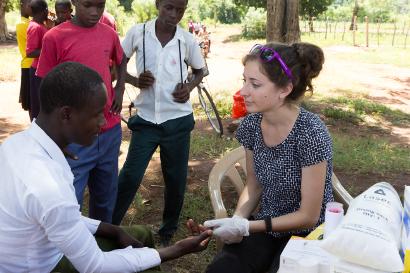New research into how Kenyan communities view medical male circumcision

Academics at The Open University (OU) have received a research grant from the Wellcome Trust to research how Kenyan communities view medical male circumcision.
Led by Dr Mark Lamont, Wellcome Trust Fellow in the OU’s Faculty of Arts and Social Sciences, the project, which began on 1 October 2018, seeks to inform debates in medical science, bioethics, law, and the history of medicine about the medicalisation of male circumcision in contemporary culture.
The research focuses on Kenya where Voluntary Medical Male Circumcision (VMMC), a HIV prevention strategy that encourages men in Africa to undergo medical circumcision as part of a worldwide campaign to end AIDS, has been operating for a decade.
Based on clinical evidence that VMMC reduces the risk of men contracting HIV from infected women by 60%, the aim is to recruit 20 million men to step forward for circumcision.
The OU-led project will examine how VMMC can gain significance and acceptance within traditionally non-circumcising communities and how the medicalisation of circumcision is seen by communities for whom ritual male circumcision is a necessary passage to legitimate sexuality and social authority for men.
“For the past decade, approaches to HIV prevention, informed by the Sustainable Development Goals' emphasis on gender and poverty, have placed men at the centre of a conscious ethos of responsible citizenship, especially in heterosexual and conjugal relationships,” said Dr Lamont. “VMMC propaganda encourages men to take charge of their bodies and protect their loved ones and intimates. VMMC is the world's largest-ever mass surgical campaign in the history of global health.”
The Male Circumcision in Kenya project was awarded a Wellcome Trust Discretionary Award of £63,000.
Read more about OU research in the Faculty of Arts and Social Sciences
Contact our news team
For all out of hours enquiries, please telephone +44 (0)7901 515891
Contact detailsNews & articles

The FUNdamentals: Why fun matters more than we think
In a world that feels increasingly serious and pressured, fun can seem like a guilty pleasure — something optional, even frivolous. But what if fun isn’t an add on at all? What if it’s essential?